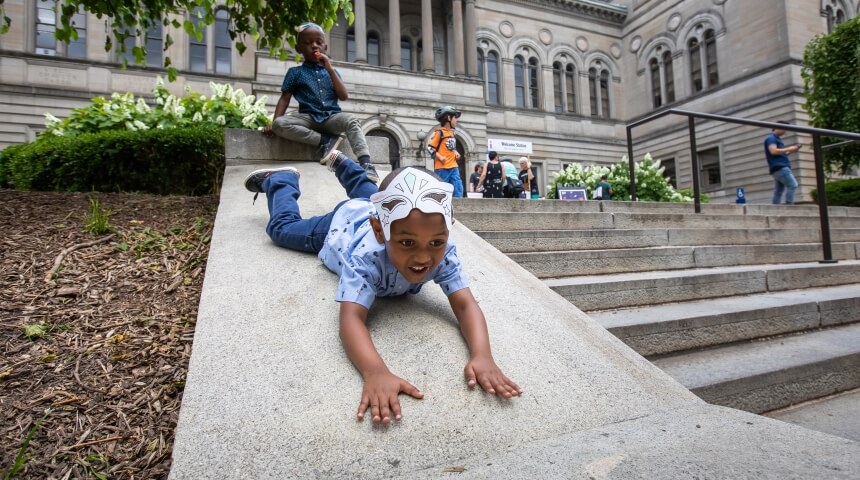With the countdown on for back-to-school season, there’s still plenty of time to help prepare kids for their new academic year—no matter how old they are!
The National Summer Learning Association reports that during the “summer slide,” or the period of summertime when children aren’t in school, kids lose two to three months of reading and math skills.
Fortunately, with time still left before the school year is in full swing, parents and caregivers can take advantage of creative options to re-energize their children’s minds. There are many fun and creative ways to help prepare your children mentally for the year ahead. Check out tips below from our librarians.
For Early Learners, (birth-5 years old)
There are five simple ways to nurture the joy of learning in little ones in this age range: reading, talking, singing, playing and writing. There are lots of creative ways to approach these categories. Why not take a nature walk and narrate everything you see? You can also stop by the Library’s Little Learners programs.
For School Age Children (5-12 years old)
Activities for this age group can include things like listening to audio books or reading destination books to plan a vacation. These kinds of activities focus on learning new vocabulary, problem solving and listening skills.
For Teens (13-18 years old)
The Scholastic Kids and Families Reading Report says that one of the critical reading motivators for teens is finding titles that interest them and they want to read. Instead of stressing over what to have their teens read, parents and caregivers should focus on what teens are interested in. With an entire archive of Teen Summer Reading booklists on the CLP’s website, there are plenty of options for your teen to choose from.
As you and your child read, listen and prepare for school, be sure to log book titles and other items as part of our Summer Reading program. The Library is challenging every Pittsburgher to read five books this summer. Currently, more than 170,000 books have been logged. With just about two weeks to go, how many books can you and your child add to the total?

